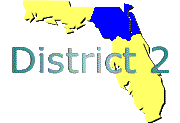

|
District 2: |
|
Send Your |

Parking Coordination Equipment Package |
 |
Description: |
This equipment package supports communication and coordination between equipped parking facilities and also supports regional coordination between parking facilities and traffic and transit management systems. Information including current parking availability, system status, and operating strategies are shared through this equipment package to enable local parking facility management that supports regional transportation strategies.
|
||||||||||||||||||||||||||||||||||
Included in: |
Park-and-Ride Lots Special Event Parking |
||||||||||||||||||||||||||||||||||
Processes: |
|
||||||||||||||||||||||||||||||||||
User Service Requirements (fully or partially addressed): | |||||||||||||||||||||||||||||||||||
|
|||||||||||||||||||||||||||||||||||
| The detailed process and user service requirement traceability information on this page was extracted from the National ITS Architecture. Consult the National ITS Architecture web site for more information. | |||||||||||||||||||||||||||||||||||
